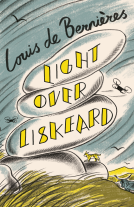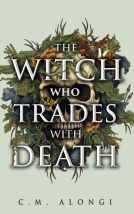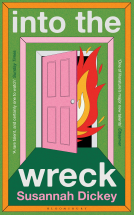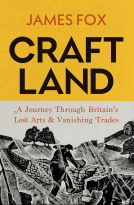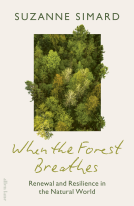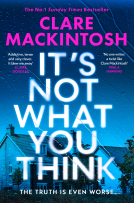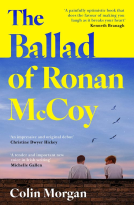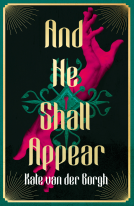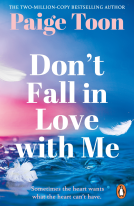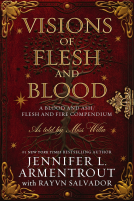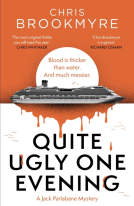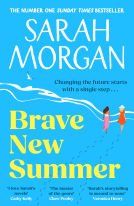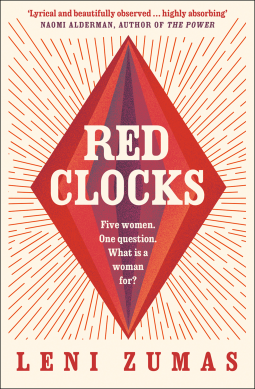
Red Clocks
by Leni Zumas
This title was previously available on NetGalley and is now archived.
Send NetGalley books directly to your Kindle or Kindle app
1
To read on a Kindle or Kindle app, please add kindle@netgalley.com as an approved email address to receive files in your Amazon account. Click here for step-by-step instructions.
2
Also find your Kindle email address within your Amazon account, and enter it here.
Pub Date 16 Jan 2018 | Archive Date 1 Apr 2022
HarperCollins UK, HarperFiction | The Borough Press
Description
SHORTLISTED FOR THE INAUGURAL ORWELL PRIZE FOR POLITICAL FICTION
‘Intense, beautifully crafted . . . Her talent is electric. Get ready for a shock’ Guardian
This is a work of fiction. Keep telling yourself that.
America has changed. For women, it has changed for the worse.
Ro, a single high-school teacher, is desperate to become a mother. But with IVF now illegal – along with abortion and other reproductive rights – parenthood looks increasingly unlikely for her. Her best friend Susan is trapped in a failing marriage with two children, her star student Mattie is unwillingly pregnant and Gin, an outcast offering other women natural remedies, has become the centre of a modern-day witch-hunt.
With warmth, wit and ferocious inventiveness, Red Clocks shows us an all-too plausible near-future: like The Handmaid’s Tale, it is a call to arms, set to become a modern classic.
Available Editions
| EDITION | Ebook |
| ISBN | 9780008209858 |
| PRICE | £5.49 (GBP) |
| PAGES | 368 |
Average rating from 34 members
Featured Reviews
 Ailsa D, Librarian
Ailsa D, Librarian
Set in a not-too-distant future where abortion has been made illegal in the US, Red Clocks follows four women in small town Oregon as they struggle to live their lives in an America where their right to choose has been taken from them. I was expecting something similar to The Power by Naomi Alderman, but the prose in this book sets it apart - the language used is much more reminiscent of magical realism, so it didn’t have the same impact as The Power, as I found it more difficult to connect with the characters. 3.5 bumped up to 4 for the brilliant front cover!
(Thanks to the publisher for providing me with a copy of this book in exchange for an honest review)
Leni Zumas' Red Clocks has been of much interest to the book world - on the back of 2017 being both a year of disastrous politics for women's rights in the US but also a year of empowerment with Women's marches and movements taking off around the world and women speaking out against assault and harassment. Similar to last year's The Power, this dystopian novel promised to take contemporary politics head on.
Zumas' novel follows four females, the Biographer - Ro, the Daughter - Mattie, the Mender - Gin, and the wife, Susan, all living in the same town. The 'Personhood Amendment' has recently been passed, criminalising abortion and IVF for both practitioners and patients alike. On top of this the 'Every Child Needs Two' Law is impending, prioritising couples and blanketly outlawing single women from adopting. These laws affect the women of the story in differing ways - some very directly, and others seemingly not at all (although we do wonder how these laws might impact the characters further down the line - in cases of divorce and custody for example). The incredible thing about this story is the plurality of female experience it represents - it is not one story, but multiple and they are all interconnected. However, this interconnectivity is not to provide neat or happy endings but to illustrate the complexity of the issue - as the reader, we want to tie things up in a simple solution - but realise this compromising logic is part of the problem.
It is hard to discuss this book without giving away spoilers, and in fact a huge part of the pleasure was working out who the characters were and how they were connected. The story is cleverly constructed and the style feeds experimental. It is reminiscent of Ali Smith in the way it taps into the character's lives and interactions. It is at once highly literary and also highly readable - the ongoing biography of a female polar explorer, and themes of whales and the sea complement the narrative and make the already complicated morality of the tale multi-layered.
The story is not without faults - lack of minority representation for example or cardboard male characters, however expecting a novel to accomplish everything in 350 pages is a high bar to set. Zumas does give us pointed reminders of privilege through Mattie's friend Yasmin and the attitudes of the male characters could illustrate a cultural regression in gender roles. Nothing is simple in this novel and with Zumas' clever plotting it would be naive to assume that something is done without reason.
The book makes for uncomfortable but highly compelling and emotive reading - it is not only an intelligent satire and commentary of contemporary politics but an impassioned treatise on the effects that this legislation has on women's lives. This book will certainly make waves this year.
Thank you NetGalley for allowing me access to this prior to publication.
Given the changes taking place in the world around us, the media furore over the perception of women and the renewed interest in feminist dystopian fiction it is, perhaps, inevitable that we end up with a book like ‘Red Clocks’.
In this book we have the stories of five very different women - a schoolteacher, Explorer, medicine woman, stay-at-home mum and a student - and how they cope with the changes to their world.
In this horribly imagined world, we have an amendment to the American Constitution. Now, foetuses have rights and anyone harming one is likely to go on trial for murder. You’d hope things will never go this far, but you can see the potential for it to go this way.
Initially I found this VERY hard to read. The female characters are defined by their roles, and it is quite difficult to work out who is who. However, as the novel progressed I found it easier to link with the characters.
This was a book I felt I needed to persevere with. I appreciate the exploration of motherhood and identity, but I fear there’ll be many readers who give up before they get to the heart of the book.
Red Clocks
BOOK
RATING
Red Clocks
Leni Zumas / 2018 / Gender Studies, Science Fiction/Fantasy
6.0 - 2 Ratings
10
Rate It
A marmite book!
This follows the lives of five women, in a world where abortion is illegal and seen as murder, IVF is also illegal as the embryo cannot give its opinion, and only married couples can foster and adopt. Back street abortions are back, and the people in a seaside town believe that a woman who lives on her own in the woods and sells cures, is a witch. Each chapter is for a separate female character: the Wife, the Biographer, the Mender, and the Daughter, and between those chapters are snippets from a book that the Biographer is trying to write about a female Arctic explorer. Each woman shows how a patriarchal society inhibits their life choices - they have no choice of their own.
I loved the flow of the language in this novel, I loved the realises of the characters who were shown to be both loving and spiteful, selfish and generous ans strong and weak. Finally, I loved how Zumas has chosen a topic that is all too current in her own country and many others around the world. This is a great book, and I wouldn't be at all surprised if it won awards. It has been criticised for riding on the coat tails of The Handmaids Tale, but I really don't think that this is the case. It is a great piece of work in its own right. This is a topic, though, that is very much on people's minds. And rightly so.
I've seen some very mixed reviews about this novel: it seems to attract extremes of hatred/ love, and I'm not overly surprised. I think the best thing to do, is to probably go and read it!
Many thanks to Netgalley and the publisher, Little, Brown and Company for the opportunity to read this!
 Skye W, Reviewer
Skye W, Reviewer
I received a free ebook of Red Clocks from Netgalley. Thankyou to the publisher and Netgalley for giving me the chance to read this! My review is still entirely honest.
Wow. This was not at all what I expected! I expected something thought provoking and insightful, which it 100% was, but from some reviews I've seen, I anticipated a slow, difficult read. I have to disagree with those reviews-I found this book engrossing, very readable and I had real difficulty putting this one down!
Red Clocks follows 5 characters in a near future America where abortion is illegal. Seeking an abortion is considered conspiracy to commit murder, fetuses have all the rights of a regular person from conception, IVF is considered unnatural and is also illegal, and adoption is set to be limited to married couples only. I do have to mention from the off that I am pro choice and live in England, where abortion is quite normalised, and so I was reading this book from that perspective. I do think that the book itself is quite neutral in how it presents issues surrounding reproductive rights, and that it presents both sides of the debate quite convincingly. This world is a scary one for someone with similar views to mine, because it seems so real. Most aspects of life are the same except for this-this isn't a dystopian world that is futuristic and entirely different from our own, this is our world if abortion were once again criminalised.
Each character is used to explore different women's issues and I grew to care for each and every one of them. The Biographer, Ro, is a woman desperate to have a child but who cannot conceive or adopt as a single woman. Infertility issues are portrayed very sensitively in this book and provide a contrast to the Daughter, Mattie, a teenage girl seeking an illegal abortion. Her own fears are presented equally well and given just as much validation as Ro's. I really enjoyed how Ro came to Mattie's aid despite her own personal feelings. The Mother, Susan, is a woman dissatisfied with married life. Her husband, Didier, is a horrible, misogynistic and lazy husband. Her story did not resonate with me as much as the others did, but she also provided another female experience in this story that others may be able to relate to. The Mender, Gin, is different to the others, a naturalist healer (or witch to the public) who provides cures to all ailments, as well as illegal abortions. Her story was almost it's own, and I enjoyed reading about her life. This book really shines in how it connects these characters. They are all connected in so many ways and every chapter brings a new surprise in how we are all associated with one another. I think it was done very skillfully. Some of the less spoilery examples I can mention are that Mattie happens to be Susan's babysitter, and that Ro works with Susan's husband.
My only issues with this book were with some brief confusion surrounding who was who for the first part of the book, since the chapters are prefaced only with 'The Biographer' or the respective term. I also want to briefly mention that the 5th perspective, that of a historical female figure involved in ice exploration, seemed unnecessary and the implications of it went straight over my head. It wasn't uninteresting, but I failed to see the significance of her in this story, or that of the other references, such as the whales or the sea.
Overall, however, one I would highly recommend to anyone interested in exploring women's rights, or to anyone who wants a read that makes you think.
I thoroughly enjoyed this novel.
The women are simultaneously Everywoman, all of whom have rights worthy of protecting/demanding, or at least representative of a group or 'type' - and also completely individual and different, not representative but entirely their own self.. Women are all different after all, each having our own personality, our own disparate set of wants, needs and motivations - which often bring us into criticism/resentment of and conflict with each other as is seen here between the main female characters.
'The Red Clocks' is simple but effectively written and structured, incredibly believable and realistically written. This is sadly something we could easily imagine becoming reality within the next year or two - and the setting and characters are everyday people whom we could potentially encounter anywhere at any time. We are also given in this story, a sweeping look at patriarchal society (the biographer adding wider scope with her work), female individuality among
the general biological realities of the gender/species, juxtaposed with male privilege.
Nature as a whole is both showcased and set against human society - alongside the reproductive gynaecology of human females, we also see the simpler woodland life with near self-sufficiency of a herbalist, differing views on life/death, the power of the elements, the unpredictability of certain landscapes, and whales......for whom differences between human cultural groupings/societal norms can mean a world of difference, life or violent death.....just as societal differences in attitude or law surrounding reproduction, abortion and personhood and rights vary and are dictated from one human or cultural group to another, nothing to do with what is natural at all.
There is so much which could be said about the issues covered here by the author, Leni Zumas, but one thing I think is certain looking at various reviews I've seen as well as the book itself is that women need to become more comfortable with their own biological reality and the use of 'gynaecological terminology' in writing and conversation. Women are complaining about 'unnecessary detail' and 'swearing' from the outsider character who provides herbal remedies - she's not swearing, she uses a word which has more recently come to be used as an insult and considered 'nasty' but is in fact, in the way she uses it, merely an alternative, older, less clinical name for a body part. Perhaps we can infer that part of the author's message is that we need to free ourselves of shame and embarrassment about our bodies, get free of that subjugation which sees our bodies as unpleasant and inappropriate, begin by knowing ourselves and being able to confidently name our parts. Ironically, I feel that if I specify the words I mean here my review could well be withdrawn.
This book is highly recommended though as an effective, engaging and thought provoking piece of work - and I'm not going to compare it to any other, as many others are, because I feel that's also unnecessary, the concept and finished tale works well enough in it's own right.
 Belinda L, Reviewer
Belinda L, Reviewer
THERE ARE MILD SPOILERS IN THIS REVIEW.
I absolutely loved this book and will be recommending it to all my female friends ... and my male ones too. I believe it has some important things to say. As a woman I could relate to so much in this book that I feel unable to review it in a coherent and detached manner. The emotions it raised were raw and unregulated and yet commonplace and routinely repressed. For example, the witch hunt that was both figurative and literal. For example, the adoring mother who longed to escape her children. For example, the would-be single mother, infertile and wondering if her desire for a child was biological or cultural. For example, the woman forced to publish her life's work under a man's name. And so much more. So much to unpack here. So many emotions. Beautifully written, devastating, heart breaking, uplifting and utterly wonderful.
I had seen this book everywhere on Instagram and Twitter and really liked the premise. Despite them scaring the bejesus out of me, I really like dystopian novels and this one sounded excellent.
In this world abortion is illegal and women are sent to prison for murder even for just asking for an abortion. Women try to cross the border to Canada for terminations, only to find they’re arrested and tried in their home state for murder.
Red Clocks is about five women and how their lives are affected by this change. As the novels go on, their lives become connected. But this is five out of over 100 million women in America. You could probably write hundreds of books set in this world. The life of every single woman is affected. Even to the point that single women wouldn’t be able to go adopt or go through IVF. Is it any better for children to have two parents?
It’s different to other dystopian novels in that it’s not too far from where we are now. It’s not like The Handmaid’s Tale or The Power where everything is completely different, where some supernatural phenomenon or war has changed society. In making abortion illegal it affects everyones lives in a new way. Their choice, their rights to their bodies was taken away from them. It’s a scary world, a slippery slope that would lead to a world like The Handmaid’s Tale.
An excellent story, a truly chilling warning and one world I hope to never be a part of.
Readers who liked this book also liked:
Jennifer L. Armentrout and Rayvn Salvador
Reference, Romance, Sci Fi & Fantasy
